Fifa bribe claim: South Africa comes out fighting
- Published
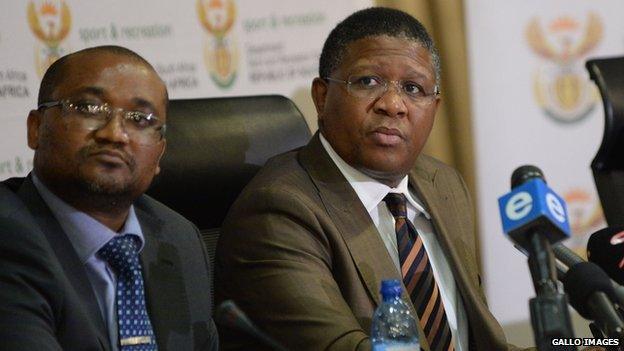
Fikile Mbalula (right) said Sepp Blatter was a "good friend to South Africa"
South Africa's sports minister was on fiery, bombastic form in Johannesburg, as he lashed out against the bribery allegations being levelled against his country.
Fikile Mbalula made it clear he believed "vested interests," and "imperialism" led by a United States "parading itself as "the world's policeman," were behind the FBI's sensational claim that South Africa paid $10 million to secure the 2010 World Cup.
"We are not in defensive mode... [but] we have a responsibility to defend the legacy of the World Cup... and our country's reputation," he said at a news conference at the headquarters of South Africa's Football Association (Safa).
Mr Mbalula, and the top official in his ministry, Alec Moemi, repeatedly insisted that the $10 million transferred to the Caribbean in 2008 was not a late bribe - four years after the vote - but a donation to support the African diaspora.
Pressed on exactly when the South African public was informed about this generous gesture, neither man chose to provide concrete details, but insisted it was "always in the open," and blamed the media for failing to report on it at the time. They said there were emails, letters, and records of meetings with Fifa on the topic.
In one of their less convincing lines of argument, Mr Moemi scathingly condemned the "shenanigans" that led to the selection of Germany to host the 2006 World Cup - as if claiming another tournament was rigged makes it less likely that South Africa's was too.
The officials showed journalists an interview given by President Thabo Mbeki, apparently in 2011, where he spoke of his government's long-standing plan to use to World Cup to support Africans both on the continent and in the diaspora.
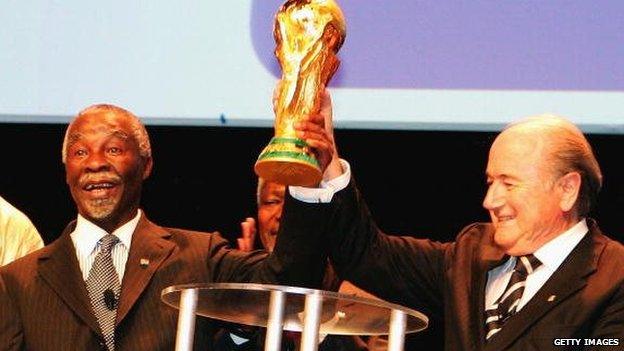
Thabo Mbeki (L), holding the World Cup trophy with Fifa's Sepp Blatter in 2006, later said that South Africa intended it to be a tournament for the African diaspora
In a sense, Mr Mbeki's words may be the strongest concrete evidence yet provided to back up South Africa's version of events.
We shall probably have to wait until the FBI reveals more information before the story moves significantly here - if indeed there is anything more than some fairly unspecific allegations.
As I've written before - if this was a bribe, it appears to have been an ingenious, easily deniable one.
And yet what struck me most about today's news conference is something along the lines of the old adage - "the real scandal is not what's illegal. It's what's legal..."
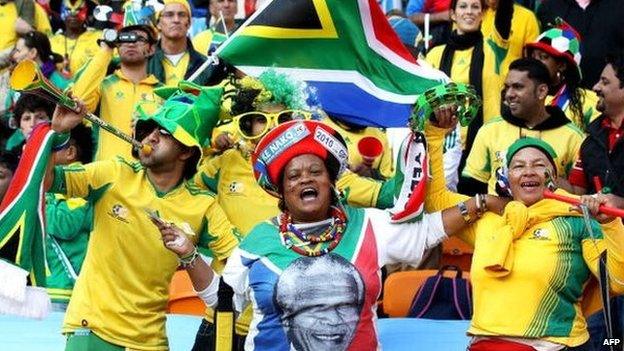
South Africa is the only African country to have hosted the World Cup
Mr Mbalula and Mr Moemi came close to boasting about the fact that the $10 million had been given by South Africa to support football development in the Caribbean "without conditions" - an expression of African solidarity and generosity.
Because the money never actually reached South Africa - it was diverted instead, as instructed, by officials at Fifa - it was not included, the officials revealed, in the audited accounts of the World Cup.
At the end of the news conference, I suggested to Mr Mbalula that - if it is proved that some or all of that money was indeed stolen - the South African government had been, at best, reckless in failing to demand some sort of accounting from the Caribbean Football Union at the time.
"No it was not reckless. It is upon those who were supposed to have administered it," said Mr Mbalula, laying any blame at Jack Warner's door.
He has a point, and yet - in the context of Fifa, an organisation that few dispute has been riddled with corruption for years - the casual manner in which $10 million was apparently dispensed, speaks volumes about the moneyed world of global football.
Lastly - the issue of Jerome Valcke.
Fifa has put out a statement insisting its secretary general knew nothing about the large transfer.
Now a leaked letter about the funds from Safa suggests otherwise, since it was addressed directly to him.
Mr Mbalula declined to offer any explanation for the apparent discrepancy, but praised Mr Valcke warmly, and mentioned the fact that he is married to a South African.
- Published29 May 2015
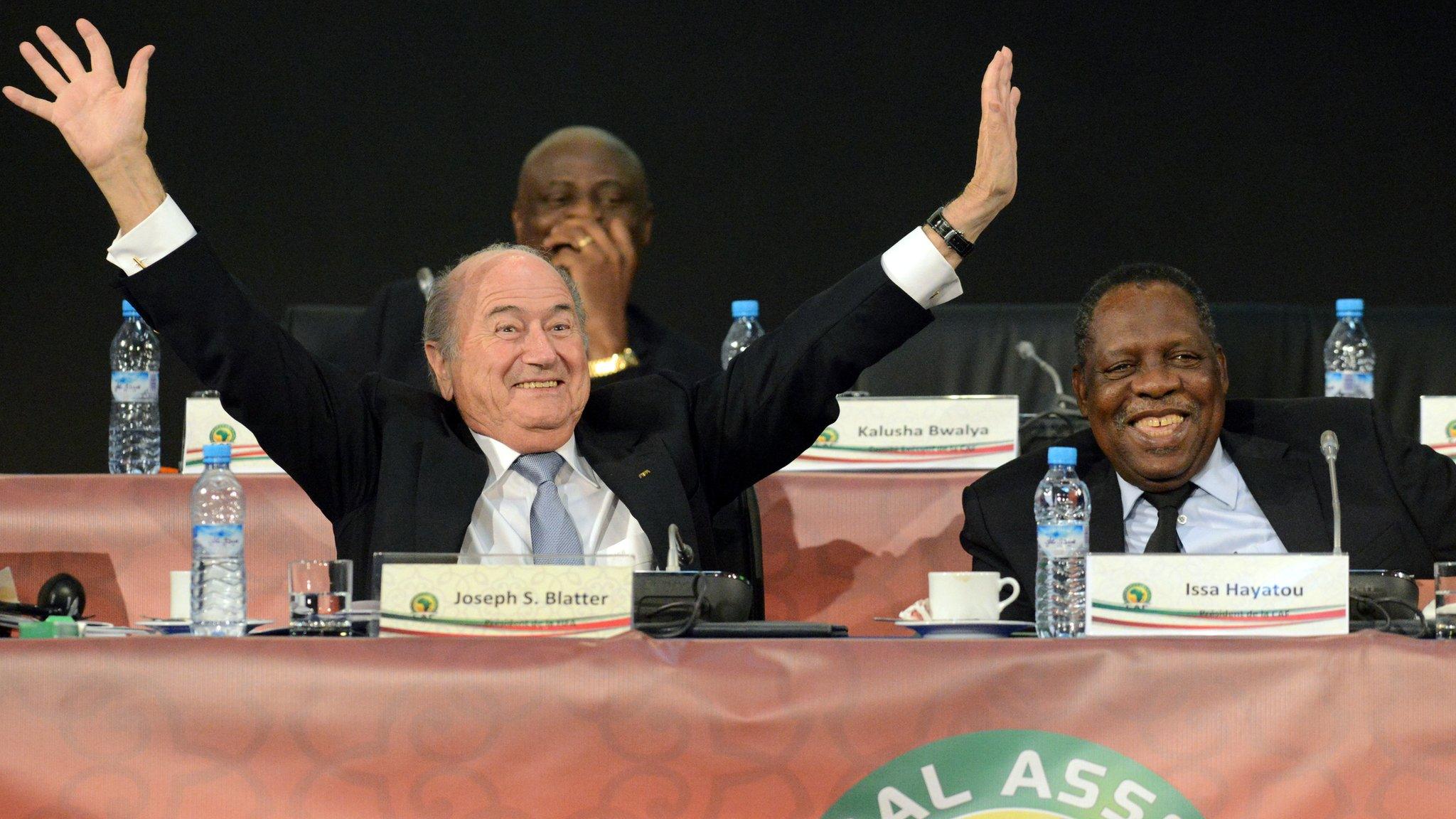
- Published28 May 2015
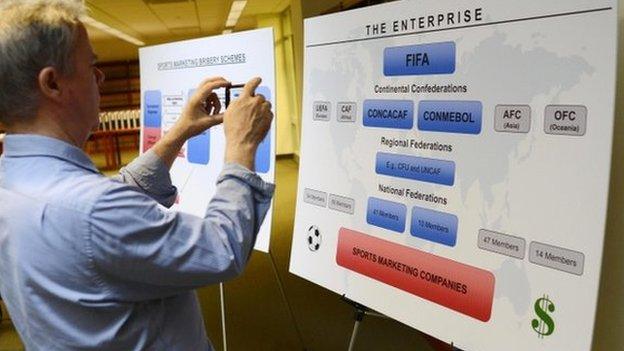
- Published28 May 2015
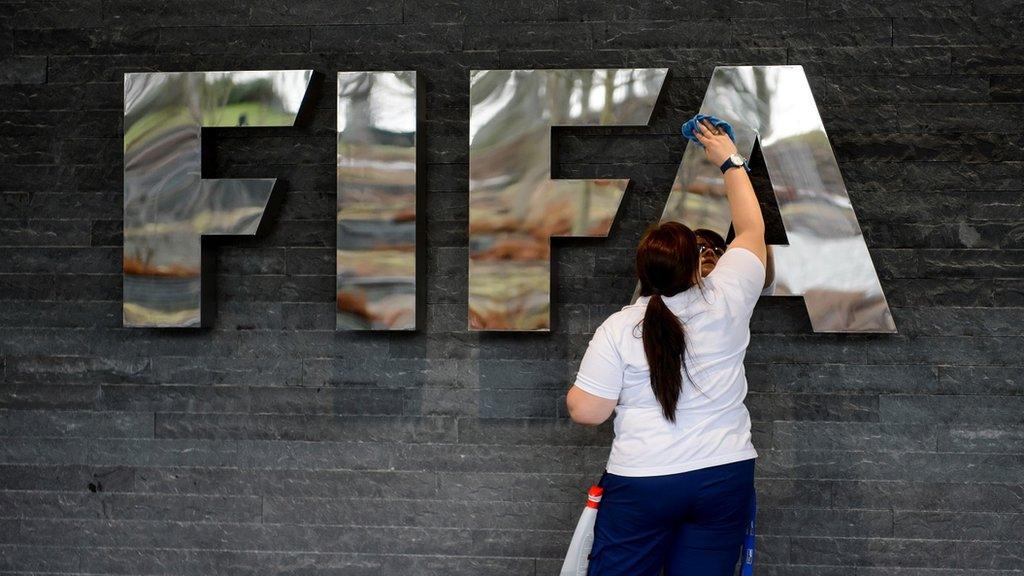
- Published9 July 2024

